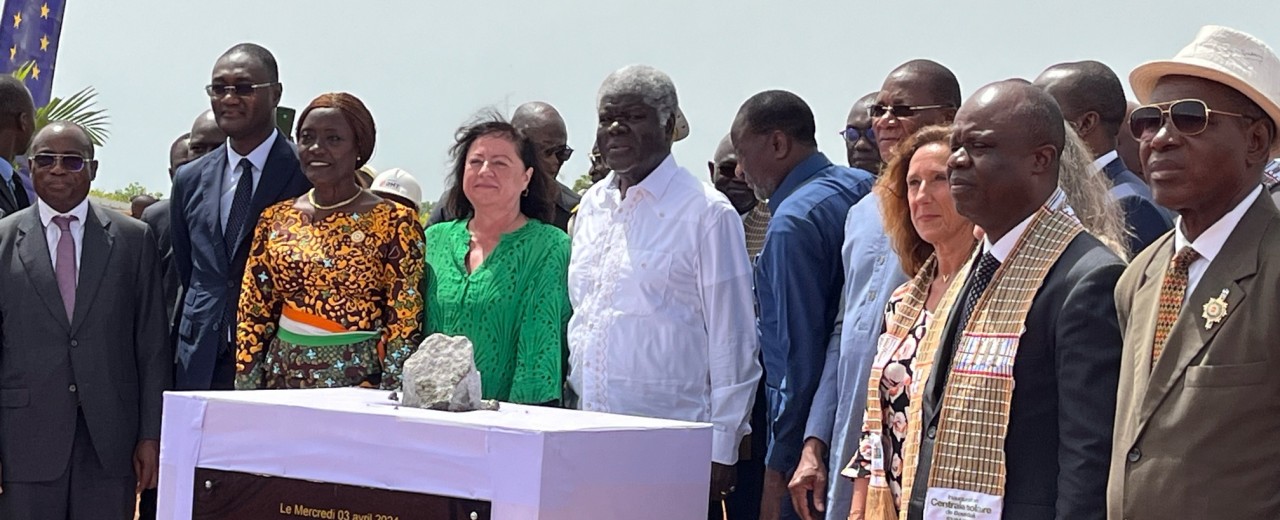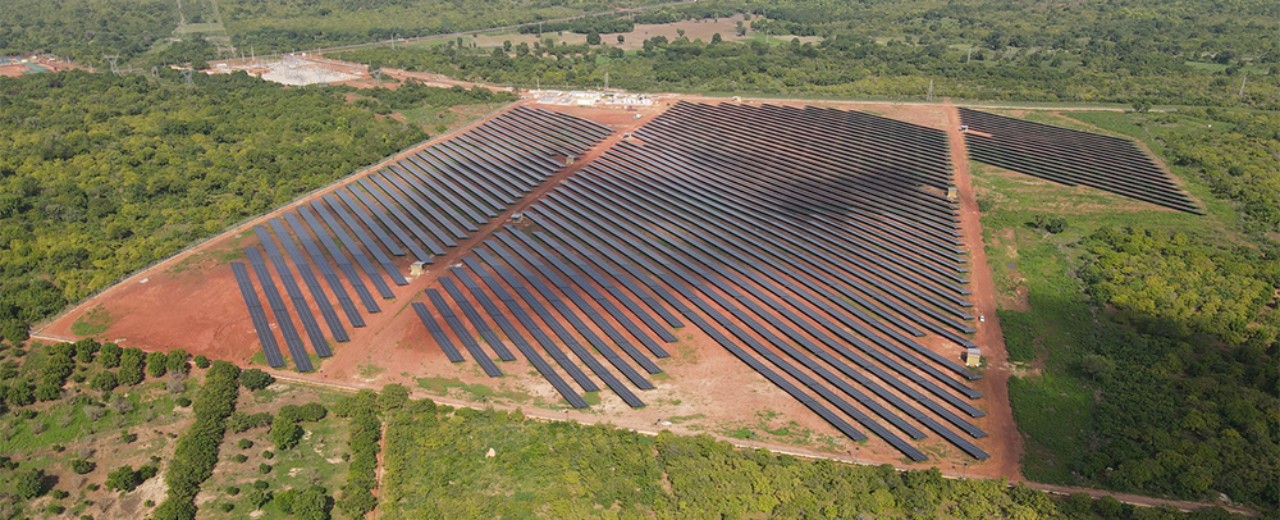News from 2024-04-03 / KfW Development Bank
The first solar power plant in Côte d'Ivoire supplies electricity for 35,000 households

The new power plant supplies 150,000 people with sustainably generated electricity. In the vast landscape of West Africa, silver sparkles in the sun: sustainable electricity is produced here with almost 70,000 solar modules. In Boundiali in the north of Côte d'Ivoire, the country's first solar power plant has now been inaugurated by Ivorian Prime Minister Beugré Mambé and German Parliamentary State Secretary Bärbel Kofler. The power plant has already been providing up to 37 megawatts of power since June 2023. The clean electricity generated in this way can supply 35,000 households, benefiting around 150,000 people. The new plant will save 35,000 tonnes of greenhouse gas emissions every year - an important contribution to climate protection. The solar power plant is regarded as a model project for the expansion of solar energy in Côte d'Ivoire. It is an important contribution to the fight against climate change and a decisive step towards increasing the share of renewable energies in the country's electricity supply to 45% by 2030.
KfW Development Bank is financing the project with EUR 37 million, including a loan of EUR 27 million on behalf of the German Federal Government and a grant of EUR 10 million on behalf of the European Union. Côte d'Ivoire is contributing five million euros from its own budget. To date, gas is still the country’s most important source of energy with a share of over 60%, while hydropower already supplies more than 30%. And the expansion of solar energy is set to continue in order to increase its share within the energy mix. At the same time as the inauguration of the power plant, the foundation stone was also laid for an expansion of this flagship project to a total capacity of 83 MWp, which is also being financed by a loan from KfW Development Bank and is scheduled for completion as early as next year. The solar power plant is then expected to be the largest in West Africa. The further expansion of solar energy in Côte d'Ivoire will primarily be realised by private investors. The successful project in Boundiali demonstrates to them that large solar projects are technically and financially feasible in similar countries.

The principle of just transition is strictly adhered to when implementing the project. Social hardship for the population is to be avoided. Landowners who owned plots of land and fields on the project site were compensated. This enabled some of the farmers to purchase agricultural equipment to better cultivate their remaining fields. A complaints office was set up for those who felt they had been treated unfairly - yet only four appeals were submitted, which were settled amicably. "We also endeavoured to create employment for the local population," emphasises KfW Project Manager Clara Winkler-Tomety. During the construction phase, 75% of the workers came from the region. The new solar power plant in Côte d'Ivoire is helping to achieve the goals of German development cooperation in the expansion of renewable energies. "The aim is to promote a climate-friendly electricity network in West Africa," explains Winkler-Tomety. The aim of the programme for the region is to help ensure that private households, public institutions and companies can obtain electricity at environmentally and climate-friendly, secure and cost-effective conditions. Cooperation with Côte d'Ivoire is to be further intensified within a climate and development partnership. The aim is to support energy transition towards more renewable energies in the West African country and to further expand its role as a net electricity exporter to enhance security of supply in West Africa.
In the international public tender organised by the Ivorian energy supplier for the construction of the power plant, a Franco-German consortium prevailed as the general contractor. In this way, Côte d'Ivoire is benefiting from European expertise, while the project is also helping to secure jobs in Germany and Europe.
